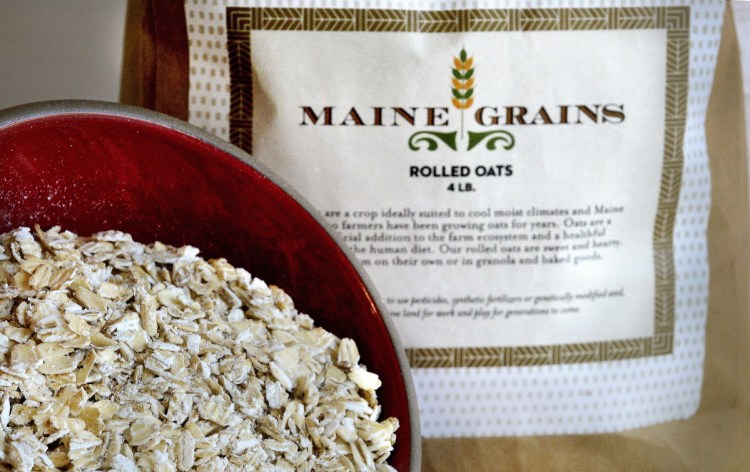Whether it’s sending a young entrepreneur for training on how to become a maltster, or growing a field of rare Estonian wheat on a Maine farm, for the past decade the Maine Grain Alliance has been at the forefront of rebuilding Maine’s grain economy.
“They have completely changed the face of bread and baking in Maine and around the Northeast, and it’s had a huge influence around the country as well,” said Alison Pray of Standard Baking Co. in Portland, who uses Maine-grown grains in many of her products. “They’re the model. They’re leading the way.”
The nonprofit organization was founded in 2010, but has its roots in the Kneading Conference, an annual gathering of bakers, millers, farmers, chefs and researchers that began three years earlier in a church parking lot. At the time, bakers were hungry for local flour, but the infrastructure didn’t exist to support commercial production of Maine grains that could be milled into Maine flour.
Jim Amaral, owner of Borealis Breads, a pioneer in using Maine flour on a commercial scale, says the alliance’s biggest impact has been bringing people together at Kneading Conference, held every July in the Skowhegan area.
“The Kneading Conference has done a marvelous job bringing together innovative thinkers about grains and grain-based products,” Amaral said. “They’ve brought the bakers together with the farmers and the millers, the oven builders, and those conversations have certainly yielded a lot of results in a lot of different places. That event has raised the visibility on a national level as well because it draws people from all over the country.”
People from 22 states, three Canadian provinces and seven countries attended the last Kneading Conference, alliance Executive Director Tristan Noyes specified. The event has spawned at least a dozen imitators around the country, beginning with the Kneading Conference West at Washington State University, an event that is now called the Grain Gathering. Montreal will host its third Kneading Conference-style gathering, called A Taste for Grain, this year. Noyes recently met with a group of bakers, farmers and millers at Plimoth Plantation in Massachusetts, and last week a group of bakers from maritime Canada contacted him to ask about bringing a group from Nova Scotia and New Brunswick to this summer’s Kneading Conference because they don’t have anything like it where they live.
Bakers attending the Kneading Conference have been inspired to start artisanal bakeries in their own communities, and the conference has expanded beyond bread, delving into using local grains to brew beer and make pasta, and offering milling workshops and farming demonstrations. Meanwhile the Skowhegan-based alliance, run by a staff of three and a board of 16, has itself expanded, holding more in-depth workshops and offering scholarships and small grants to entrepreneurs who want to start a grain-based business. Its program to save rare and heritage varieties of grain has restored 13 types of grain seeds as well as four native Maine flint corns. As these programs have grown, the infrastructure to support a new Maine grain economy has grown as well.
The number of Maine farms growing grains for baking or brewing, such as wheat, rye, einkorn and emmer, has quintupled in the past decade, according to Noyes.

Tristan Noyes, executive director of the Maine Grain Alliance, at the Somerset Grist Mill in Skowhegan. Staff photo by Doug Harlow
“We’ve also seen the artisan bakery prosper across the Northeast,” he said. “Many of the Northeastern states and New England have looked at the Maine Grain Alliance as a thought leader in understanding how to bring grain back in a regional grain economy.”
Pray said the work of the alliance has “completely opened up the opportunities for us to work with local ingredients in a way that restaurant chefs have been able to do for decades.”
“We really had limited choice,” she said. “We could go out of the country, we could go to Quebec, we could go to upstate New York, but it’s not sustainable. It’s still a long distance. There’s a lot of added shipping costs, and it’s not keeping money in Maine for the Maine farms.”
The next challenge, Noyes said, will be developing infrastructure to sort, dry and store local grains. In the early 1800s, before the rise of the railroads, Maine and Vermont were considered the breadbasket of New England. Could Maine ever regain that status? “We may again be the breadbasket of New England,” Noyes said, “but I think that the bread, fortunately, is going to look different and be better and more nutritious, and just taste better.”
Meredith Goad can be contacted at 791-6332 or at:
mgoad@pressherald.com
Twitter: MeredithGoad
Send questions/comments to the editors.



